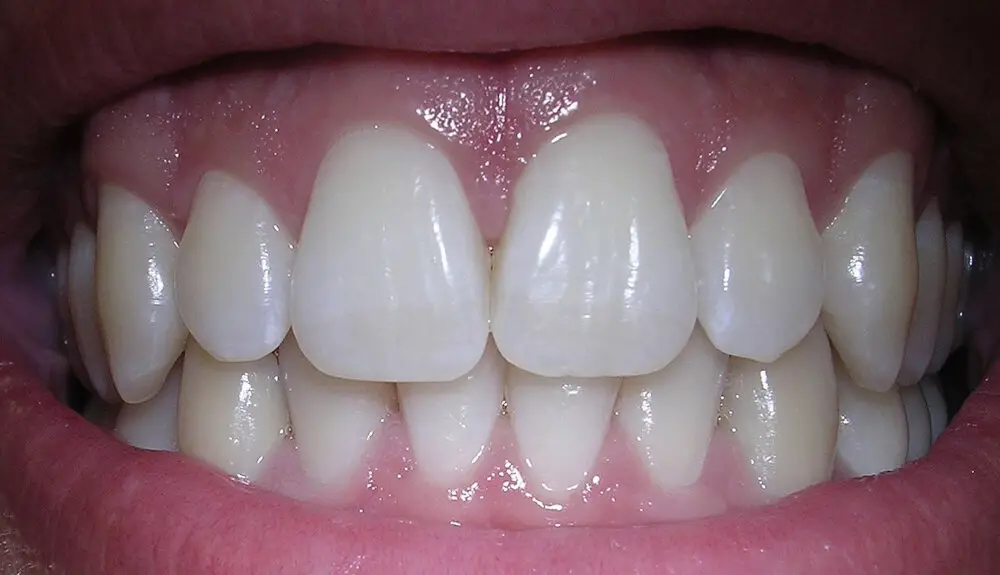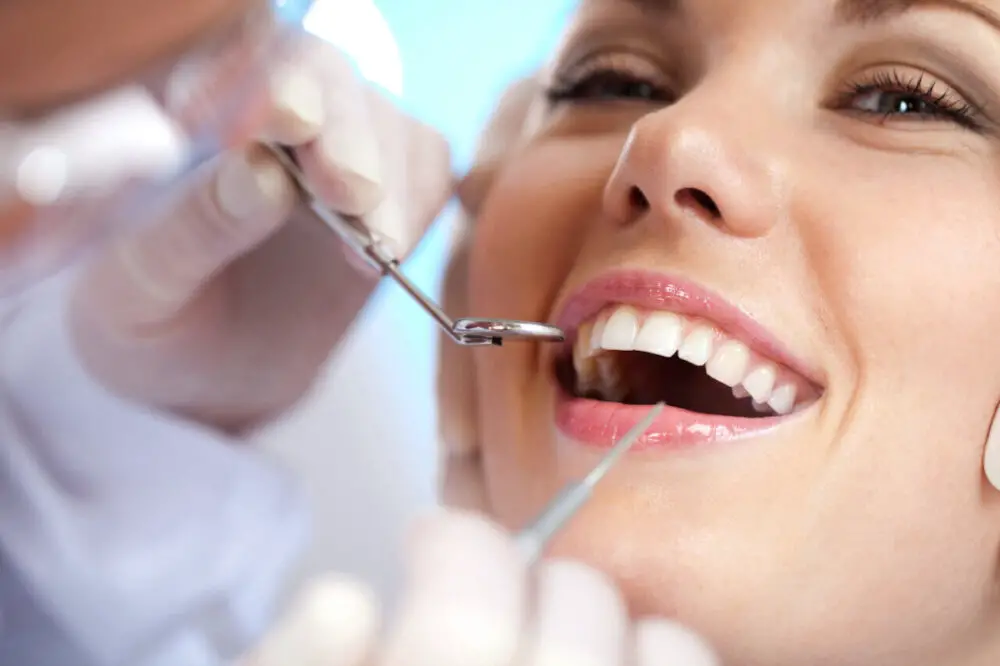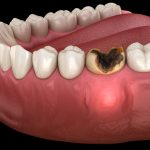Teeth Cleaning: How Long Does it Really Take?

Taking care of your teeth is an essential part of maintaining good oral hygiene and overall health. A crucial aspect of this care is regular teeth cleaning, but how long should it take to complete this task effectively? The answer to this question is not a simple one, as the amount of time required for teeth cleaning can vary based on several factors. One of the primary factors that can affect how long it takes to clean your teeth is the level of buildup and plaque on your teeth. If you have significant buildup, it may take longer to remove it, compared to those with minimal buildup. Additionally, the thoroughness of your brushing and flossing technique can also impact the time needed for teeth cleaning. In this article, we will explore the various factors that influence how long it takes to clean teeth and provide tips on how to ensure you are cleaning your teeth thoroughly.
Teeth cleaning is an essential part of maintaining good oral hygiene and overall health. Neglecting to clean your teeth regularly can lead to a buildup of plaque, which can cause tooth decay, gum disease, bad breath, and even tooth loss. It is recommended that individuals brush their teeth twice a day and floss once a day to remove any food particles and bacteria that can accumulate in the mouth. Additionally, regular visits to the dentist for professional cleanings can help to remove any stubborn plaque or tartar that brushing and flossing alone cannot remove. Taking the time to properly care for your teeth can not only improve your oral health but also your overall health and well-being.
There are various types of teeth cleaning methods available to ensure good dental hygiene. One of the most common methods is brushing with a toothbrush and toothpaste twice a day. Electric toothbrushes are also available for those who want a deeper clean. Another effective method is flossing, which helps to remove food particles and plaque from between teeth. Mouthwash can also be used as a supplementary method to remove bacteria and freshen breath. Additionally, professional dental cleaning by a dentist or dental hygienist every six months is recommended to remove tartar buildup and check for any potential dental issues. With a combination of these methods, individuals can maintain optimal dental health and prevent tooth decay and gum disease.
Factors that Affect the Duration of Teeth Cleaning

Teeth cleaning is an essential oral hygiene practice that aims to remove plaque, tartar, and other debris from the teeth and gums. The duration of teeth cleaning can vary based on several factors. The first factor that affects the duration of teeth cleaning is the extent of the buildup of plaque and tartar. The more buildup there is, the longer it will take to remove it. If the buildup is minimal, then a quick cleaning may only take a few minutes. However, if there is a significant amount of buildup, it may take longer, possibly up to an hour or more. Another factor that affects the duration of teeth cleaning is the technique used by the dental professional. Different techniques may require more time to complete the cleaning process. For example, traditional scaling and root planning techniques may take longer than ultrasonic scaling, which uses high-frequency vibrations to remove tartar and plaque. Additionally, the use of dental tools such as mirrors, scalers, and curettes may require more time to ensure that all areas of the teeth and gums are adequately cleaned. Ultimately, the duration of teeth cleaning will depend on the individual’s oral health needs and the technique used by the dental professional.
The severity of teeth staining can vary greatly depending on a person’s diet, oral hygiene habits, and lifestyle choices. Some people may experience mild staining caused by drinking coffee or tea, while others may have more severe staining from tobacco use or certain medications. In some cases, teeth may appear yellow or brown due to a buildup of plaque and tartar, which can be difficult to remove with regular brushing and flossing. Professional teeth cleaning can help to remove surface stains and deep-seated discoloration, leaving teeth looking brighter and healthier. However, the length of time it takes to achieve optimal results will depend on the extent of staining and the individual’s overall oral health.
The presence of dental problems can be a major barrier to maintaining good oral health. Neglecting basic dental care such as brushing and flossing can lead to the accumulation of plaque and tartar, which can cause tooth decay and gum disease. These conditions can be painful, unsightly, and can even lead to tooth loss if left untreated. Regular dental check-ups and cleanings are essential for preventing and treating dental problems. During a dental cleaning, a dental hygienist will remove any build-up of plaque and tartar, as well as provide advice on proper brushing and flossing techniques. By taking care of your teeth and addressing dental problems as they arise, you can maintain a healthy smile and avoid more serious oral health issues down the line.
There are several types of teeth cleaning procedures, each tailored to specific needs. The most common type is prophylaxis cleaning, which is a routine cleaning that removes plaque and tartar buildup above the gum line. For those with more advanced gum disease, a deep cleaning called scaling and root planing may be necessary. This procedure involves removing plaque and tartar from beneath the gum line, and smoothing the root surfaces to promote healing. Another type of cleaning is air polishing, which uses a combination of air, water, and baking soda to remove surface stains and plaque. Laser cleaning is a newer option that uses laser technology to remove plaque and tartar buildup. Regardless of the type of cleaning, regular dental check-ups and cleanings are crucial for maintaining healthy teeth and gums.
Patient cooperation is a critical factor in determining the duration of teeth cleaning procedures. It is essential to ensure that patients follow the instructions given before and during the cleaning process. Patients must maintain good oral hygiene habits, such as brushing and flossing regularly, to help prepare for the cleaning. Additionally, patients should inform the dentist of any discomfort or issues they may experience during the cleaning to ensure a smooth and efficient procedure. Cooperation from patients is necessary to achieve optimal oral health and maintain a clean and healthy smile.
Average Time Duration for Different Teeth Cleaning Procedures

Keeping teeth clean is crucial for oral health. Teeth cleaning procedures are essential to prevent cavities, gum disease, and other oral health problems. The duration of different teeth cleaning procedures varies depending on the type of cleaning required and the severity of the dental issue. The average time duration for teeth cleaning procedures can range from 30 minutes to 2 hours. Regular dental checkups and cleaning sessions are essential to maintain oral health, and they can be performed by a dentist, dental hygienist, or dental therapist. The duration of a dental cleaning session can vary depending on the cleaning method used. A routine dental cleaning procedure can take between 30 minutes to an hour, and it involves removing plaque and tartar buildup from the teeth using specialized tools. Deep cleaning procedures such as scaling and root planing can take up to 2 hours, and they are performed to remove plaque and tartar buildup from deep beneath the gum line. These procedures are recommended for patients with advanced gum disease or periodontitis. The duration of teeth cleaning procedures can also depend on the patient’s oral health history, age, and overall health condition. It is recommended to discuss the duration of teeth cleaning procedures with your dentist to have a clear understanding of the process and its duration.
Regular dental cleaning is an essential component of maintaining good oral hygiene. It involves the removal of plaque, tartar, and stains from the teeth and gums. This process not only helps to prevent tooth decay and gum disease but also keeps your teeth looking bright and healthy. The American Dental Association recommends that individuals schedule a dental cleaning at least twice a year to ensure that any potential problems are detected early. The duration of the cleaning can vary depending on the individual’s oral health and the amount of buildup present, but generally, it takes about 30 minutes to an hour. During the cleaning, a dental hygienist will use specialized tools to scrape away any buildup and then polish the teeth to remove any surface stains. Overall, regular dental cleaning is an important step in maintaining a healthy mouth and keeping your smile looking its best.
Deep cleaning, also known as scaling and root planing, is a dental procedure that involves the removal of plaque and tartar from the teeth and gums. Unlike regular teeth cleaning, deep cleaning is a more extensive procedure that typically requires multiple appointments with a dental hygienist or dentist. The process involves the use of specialized tools to remove plaque and tartar from below the gum line, where traditional brushing and flossing cannot reach. This type of cleaning is typically recommended for patients with gum disease or those who have not had a professional teeth cleaning in a long time. While the length of the procedure can vary depending on the severity of the patient’s condition, it typically takes between one and two hours per quadrant of the mouth.
Scaling and root planing is a deep cleaning procedure that is performed by a dental professional to treat gum disease. This treatment involves cleaning the teeth below the gum line and removing plaque and tartar buildup that can cause inflammation and infection. Scaling involves removing plaque and tartar from the surface of the teeth, while root planing involves smoothing the rough surfaces of the tooth roots to promote healing and prevent further buildup. This procedure is typically performed over multiple appointments and may require local anesthesia to ensure patient comfort. Scaling and root planing can be an effective way to treat gum disease and prevent further damage to the teeth and gums. It is important to maintain good oral hygiene habits and regular dental checkups to prevent gum disease from developing or progressing.
Teeth whitening has become increasingly popular in recent years as people seek to achieve a brighter, more radiant smile. There are several methods available, ranging from over-the-counter products like whitening toothpaste and strips to professional treatments done at the dentist’s office. While these treatments can be effective, it is important to remember that results may vary depending on the individual’s dental health and habits. It is also important to note that teeth whitening is not a substitute for regular dental cleanings and maintaining good oral hygiene habits. As with any dental procedure, it is best to consult with a dental professional to determine the best course of action for achieving a brighter, healthier smile.
Tips to Shorten Teeth Cleaning Time

Teeth cleaning is an essential step towards maintaining good oral hygiene, yet it can be a daunting task for many people. It’s easy to get caught up in the process and end up spending more time than necessary. Fortunately, there are several tips that can help you shorten your teeth cleaning time without compromising on the quality of your dental care. Firstly, use an electric toothbrush as it can clean your teeth more effectively and efficiently than a manual toothbrush. It can also help you clean hard-to-reach areas of your mouth with ease. Secondly, use interdental brushes or floss picks to clean the gaps between your teeth. These tools are designed to remove plaque and debris from tight spaces that a toothbrush cannot reach. By incorporating these tools into your teeth cleaning routine, you can save time and improve your oral hygiene. Moreover, you can also use a mouthwash to rinse your mouth as it can kill bacteria and freshen your breath. However, it’s important to note that mouthwash should not replace brushing and flossing, but rather complement them. By following these tips, you can shorten your teeth cleaning time and still maintain good oral hygiene. In conclusion, teeth cleaning is a crucial step towards maintaining healthy teeth and gums. However, it doesn’t have to be a time-consuming task. By using an electric toothbrush, interdental brushes or floss picks, and mouthwash, you can shorten your teeth cleaning time and still achieve effective results. Furthermore, it’s important to remember that regular dental check-ups and cleanings are also necessary to maintain good oral health. By adopting these tips and seeking professional dental care, you can maintain a healthy and beautiful smile for years to come.
Maintaining good oral hygiene is crucial for overall health and well-being. The American Dental Association recommends brushing your teeth twice a day for at least two minutes each time and flossing at least once a day. It is also important to visit the dentist regularly for cleanings and check-ups. Neglecting oral hygiene can lead to a host of problems including cavities, gum disease, and bad breath. Additionally, poor oral health has been linked to other health issues such as heart disease and diabetes. Taking the time to properly care for your teeth and gums can not only improve your overall health but also give you a brighter, more confident smile.
It is highly recommended to avoid eating anything before your teeth cleaning appointment, as it can interfere with the cleaning process. The presence of food particles can make it difficult for the dental hygienist to thoroughly clean your teeth, resulting in an incomplete cleaning. Additionally, eating before the appointment can also lead to discomfort during the cleaning, especially if the hygienist needs to probe deep into your gums. It is best to schedule your appointment at a time when you can avoid eating for at least two hours prior. This will ensure that your teeth are clean and ready for a thorough cleaning, allowing the hygienist to do their job efficiently and effectively.
Before undergoing teeth cleaning, it is imperative to discuss the procedure with your dentist or dental hygienist. This is because different individuals may have varying levels of dental health and may require a different approach to teeth cleaning. During the discussion, the dentist will explain the cleaning process, including the tools and techniques used, and advise on the amount of time that the procedure will take. They may also offer suggestions on how to improve oral hygiene practices to maintain healthy teeth and gums. It is crucial to ask any questions or express any concerns before the cleaning to ensure that the process runs smoothly and efficiently.
Maintaining oral hygiene is crucial for overall health and well-being. Teeth cleaning plays a vital role in preventing dental issues such as cavities, gum disease, and bad breath. Neglecting regular cleaning can cause a buildup of plaque and tartar, which can lead to serious problems. Brushing twice a day and flossing once a day is recommended, but it is also important to get professional teeth cleaning done at least twice a year. A dental hygienist can remove the accumulated plaque and tartar, leaving teeth clean and healthy. Teeth cleaning is not just about aesthetics, but it is also important for maintaining excellent oral health and preventing diseases. So, take care of your teeth and make sure to get them cleaned regularly to keep your smile healthy and bright.
The duration of teeth cleaning can be affected by several factors. Firstly, the individual’s oral health plays a significant role in determining the time required for cleaning. If the person has good oral hygiene practices and has been consistent with regular dental visits, the cleaning procedure may take less time. On the other hand, if the person has neglected their dental health and has not visited a dentist in a long time, the cleaning may take longer. The extent of plaque and tartar buildup can also affect the duration of cleaning. Additionally, the type of cleaning required, such as a routine cleaning or a deep cleaning, can influence the time needed for the procedure. Finally, the expertise and efficiency of the dental hygienist performing the cleaning can also impact the duration of the procedure.
When it comes to teeth cleaning, the average time duration varies depending on the type of procedure. A standard teeth cleaning, also known as a prophylaxis, typically takes around 30 to 45 minutes to complete. However, if the patient has a significant amount of plaque buildup, it may take longer. Deep cleaning, also known as scaling and root planing, is a more intensive procedure that involves removing plaque and tartar from beneath the gum line. This procedure can take anywhere from one to four hours, depending on the severity of the patient’s condition. In general, it is important to allow enough time for a thorough teeth cleaning to ensure optimal oral health.
Teeth cleaning is an essential daily habit that helps maintain oral hygiene and prevent dental problems. However, many people find it time-consuming and often skip it, leading to oral health issues. To shorten teeth cleaning time, there are some tips you can follow. Firstly, choose the right toothbrush and toothpaste for your teeth and brush them in circular motions for at least two minutes. Secondly, consider investing in an electric toothbrush that can clean your teeth more efficiently and in less time. Thirdly, floss your teeth at least once a day to remove debris and plaque from between your teeth. Lastly, rinse your mouth thoroughly with water or mouthwash to eliminate any remaining bacteria. By following these tips, you can shorten your teeth cleaning time and maintain healthy teeth and gums.
Conclusion

In conclusion, teeth cleaning is an essential aspect of maintaining good oral hygiene. The duration of teeth cleaning can vary from person to person, depending on their dental health and the method used. While some may opt for a quick brush, others may require a more thorough cleaning that takes longer. Regardless of the method chosen, it is crucial to prioritize regular teeth cleaning to prevent dental problems such as cavities and gum disease. Taking the time to care for your teeth now can save you from costly and painful dental procedures in the future. So, invest the time and effort into your teeth cleaning routine, and your smile will thank you for it.






